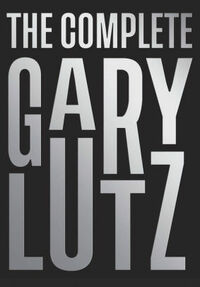Take a photo of a barcode or cover
dark
emotional
funny
hopeful
reflective
sad
medium-paced
Plot or Character Driven:
Character
Flaws of characters a main focus:
Yes
Did a review of this book here: https://youtu.be/yehbybXyBeg
How could I get through almost 500 pages of short stories and only at the end realize: 1) they're all in first-person and 2) almost every story is about failed love/marriage and sexual confusion? I hung on every blessed word.
This is because Gary Lutz is a poet. These are exquisite poems formatted into short stories--with extremely clever neologistic touches. He obviously works the prose to perfection and says exactly how he feels. There's really nobody like him. The kind of book you blather about to strangers.
This is because Gary Lutz is a poet. These are exquisite poems formatted into short stories--with extremely clever neologistic touches. He obviously works the prose to perfection and says exactly how he feels. There's really nobody like him. The kind of book you blather about to strangers.
There are some books you read for the plot, and some you read for the information. But then there are some you read as a fan of the sentence—to see what language can do when stress-tested. This book? Is that. In short bursts—which are maybe "stories" or "poems," except they don't look like either—Lutz does to the sentence what Escher did to perspective, what Stephen Wright did to jokes, what Duchamp did to urinals. I'm left laughing, though it's never clear what's so funny. It could be the (mostly derelict) events on the page, but more likely, it’s the bumbling incompetence of language as a mode of communication. Or it could be me, sitting in a chair and opening a book hoping for clarity, and instead watching a finger extend from the page and stick me in the eye. I love when that happens.
This was sent to me (not found on a stoop), so thank you, K.
#garylutz #gariellelutz #book #books #booktok #bookstagram
This was sent to me (not found on a stoop), so thank you, K.
#garylutz #gariellelutz #book #books #booktok #bookstagram
One word: solipsism.
I've never, once in my life, read as many pages without finding a hint of interest in another human being, no, for anything outside the writer's head. Complete objectivisation of the un-self.
And yet I read a lot of stuff by Roth. But this one takes the cake.
I've never, once in my life, read as many pages without finding a hint of interest in another human being, no, for anything outside the writer's head. Complete objectivisation of the un-self.
And yet I read a lot of stuff by Roth. But this one takes the cake.
challenging
mysterious
slow-paced
Intricate prose cannot be all that holds a story together, and after the first half-dozen stories, you quickly realize that all of Lutz’s characters have the same sinking, banal detachment from their lives, their spouses, their children, their jobs, their neighbors, their surroundings, and themselves, and it all becomes a repetitious slog whose only aim appears to be to drag the reader into a depressing nihilism, but not even, because at least nihilism requires you to feel something.
challenging
slow-paced




